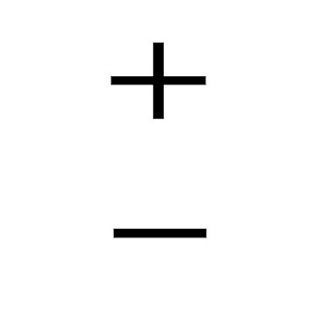 |
| If you think these symbols mean "good" and "bad," you need new glasses. |
The textbook I am currently assigned to teach asks “Read the article again. Who thinks the changes are positive and who thinks they are negative?”
This is an ESL textbook. Why could they not have used the much less ambiguous, more common, and shorter words “good” and “bad”? Surely this would be far more suitable for any audience, let alone an ESL audience.
If you check a modern dictionary, you find that “positive” and “negative” CAN have the meanings “good” and “bad” (“Measured or moving forward in a direction of increase or progress” – American Heritage), but this is based on a metaphor, and is not their original meaning. And if you go back to Webster’s 1913 edition, no such usage is given. Their use in this way is confusing because it is not directly related to their use as technical terms: i.e., positive means greater than zero, and negative means less than zero.
So why did even an ESL textbook use them in place of the more obvious and more correct terms? I think because “good” and “bad” sound like moral terms, and morality is now, idiotically because in perfect self-contradiction, itself considered evil. (“Don’t be judgmental.”) “Positive” and “negative,” on the other hand, sound scientific, because they are mathematical terms. So they are supposedly not “judgmental”; they are true, objective, and precise. Even though they are saying the same thing; and even though saying “positive” and “negative” is actually a more absolute, less debatable judgment than “good” and “bad.” You can’t argue basic math.
Please, citizens, let’s go back to “good” and “bad.” Whenever you are about to use the terms “positive” and “negative,” stop yourself and consider whether you are using them properly in a technical context. Otherwise, say “good” or “bad.”
 |
| Confucius as imagined by a 17th century French artist. He knew a lot about good. |
As Confucius said when asked what he would do if he ever had political power: “The first thing is the rectification of terms.” If we do not speak and write clearly and honestly, all else is lost.












No comments:
Post a Comment